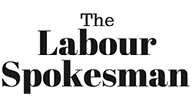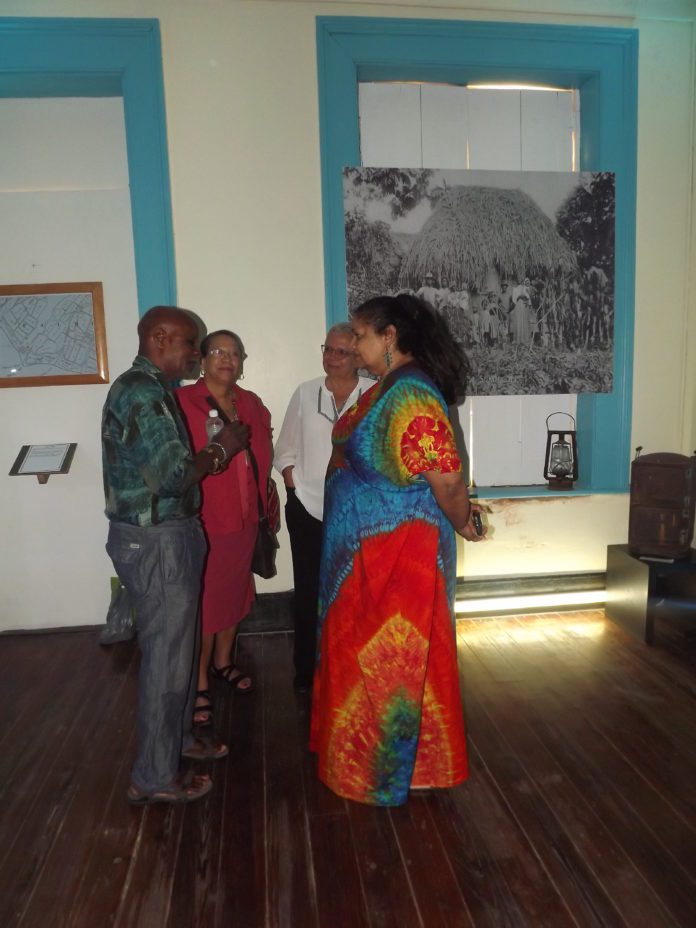By: Precious Mills
BASSTERRE, St.Kitts (FEBRUARY 2018)– Dubbed the ‘Emancipation Journey,’ a second annual joint exhibition, through collaboration between the St. Christopher National Trust and the National Archives, was officially launched on Friday 17th February- under the patronage of the Governor General Sir Tapley Seaton-at the National Museum’s located on the Bay Road in Basseterre.
This five-week display is part of History and Heritage Month featuring historic documents lent by the National Trust Fund.
Speaking to the team work behind the historic display, the Director of the National Archives, Vicky Borg-O’Flaherty, told: “We have gone from showing one document to showing five this time. They are all part of the story of the post emancipation period. We start with the Emancipation Act it was passed here because of the decision by the British government that each colony had to pass through legislations. The Trust has been kind to give us the space to show off some of the very important records that we hold in our collection.”
She outlined that the 2017 exhibit was about the register of slaves (the 1817 Register of Slaves), noting that it was the 200th anniversary “(and) we wanted to show the public what it was like. We are following it up with the story of post emancipation period.
According to her: “Things changed and didn’t change at the same time. There was freedom in the sense of the law but there were so many restrictions on what workers could do with their time and their abilities. We start the exhibition with the emancipation Act that was passed here in St.Kitts. This was a requirement that the British government put in place because they wanted all colonies to pass their own legislations. The volume it is in contains not only the Emancipation Act but all related acts to regulate the lives of the apprentices and their masters so to speak to make sure that law and order was enforced and so on.”
Borg-O’Flaherty shared that apprenticeship ended in 1838 period where there was a lot of fear that the estates would lose their labour and therefore in 1849 came about the passage of Masters and Servants Act.
“That law was enforced right into the 20th century and it meant that people could not move around the way they thought they’ll be able to. It also meant that if they did not show up for work, they could be punished. There were all sorts of situation where people found themselves almost as though they were being enslaved all over again; the only difference was that they couldn’t use the whip on them anymore,” she further remarked.
Another document on display is one of the stipendiary migrate journals of F. Robinson Taylor.
Borg-O’Flaherty indicated that St.Kitts is probably the only island that still has these special magistrates’ journals.
As understood, such documents contain information regarding “magistrates who heard cases in the period after emancipation when people were complaining of not being paid enough or being paid for the work that they did and in other cases other people complaining that their workers were being rude and not showing up for work..”
The National Archives Director added: “and we have examples of these things mostly through the press because we don’t seem to have anything after the 1830s in the way of journals from them; we don’t know what happened there. In other islands, they don’t even have the ones from the 1830s.”
One more document publicised is the Compensation Claim (a copy of the original) which shows the way people during apprenticeship were divided into certain groups and also what the planters and British government thought they were worth. Breakdown of such workers included head workers and inferior workers.
Borg-O’Flaherty hopes that exhibition will be an educational gap filler.
“We are trying to explore the 19th century. In our history books, especially in St.Kitts, we tend to jump from Emancipation to the launch of the Labour movement. It’s a big gap and the Labour movement could not have happened without what was going on in that period and it’s time we learnt about it so the whole purpose of this exhibition is to try fill in some of the information that is missing and I hope we’ve done a good enough job to get the ball rolling on this,” she expressed.
The President of the St. Christopher National Trust, Schneidman Warner, commented that his organisation is “extremely honoured here that yet again the National Archives have decide to partner with us to mount this exhibition which seeks to educate, inform, tell the story of our history and its very important transformational part of our history-the formal release of our forebears from enslavement.”
“The documents that you’ll be able to look at are testimony to the ideas that existed at that time, the attitudes under which people were kept in bondage and so it is something of great importance to our people and to the telling of this story of our people,” he also pointed out.
Opening hours for the museum are Monday to Friday 8:00 AM-4:00 PM as well as Saturday and Sunday 8:00 AM- 2:00 PM. General admission for locals/residents is EC$5.00 while admission to the special exhibition is an additional EC$5.00.
Additionally, as gathered, persons can visit the exhibit only if that is all they want to see. However, on weekends, the museum admission for locals/residents is waived valued at EC$5.00 only for both.
Notably, History and Heritage Month is an initiative of the Brimstone Hill Fortress National Park Society in partnership with the St. Christopher National Trust, the National Museum, the Nevis Historical and Conservation Society, the University of the West Indies Open Campus and other agencies.




